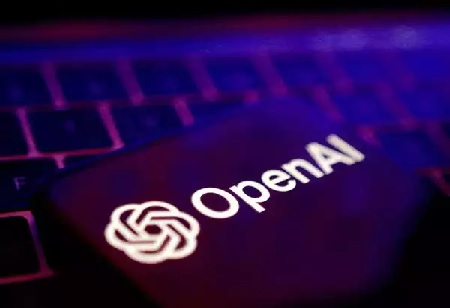
OpenAI and Kakao Join Forces to Boost AI Services in South Korea

 OpenAI CEO Sam Altman struck a deal with tech giant Kakao in South Korea, as the U.S. company looks to forge new alliances following the disruption caused by Chinese competitor DeepSeek in the global AI industry. Kakao, which owns South Korea's largest taxi-hailing app, an online bank, and KakaoTalk, revealed a partnership that will allow the company to integrate ChatGPT into its new AI services, joining a global alliance spearheaded by OpenAI amid rising competition in the sector.
OpenAI CEO Sam Altman struck a deal with tech giant Kakao in South Korea, as the U.S. company looks to forge new alliances following the disruption caused by Chinese competitor DeepSeek in the global AI industry. Kakao, which owns South Korea's largest taxi-hailing app, an online bank, and KakaoTalk, revealed a partnership that will allow the company to integrate ChatGPT into its new AI services, joining a global alliance spearheaded by OpenAI amid rising competition in the sector.
Altman's company is part of the Stargate drive announced by U.S. President Donald Trump to invest up to $500 billion in AI infrastructure in the United States.
But AI newcomer DeepSeek has sent Silicon Valley into a frenzy, with some calling its high performance and supposed low cost a wake-up call for U.S. developers.
"We're excited to bring advanced AI to Kakao's millions of users and work together to integrate our technology into services that transform how Kakao's users communicate and connect", said Altman.
"Kakao has a deep understanding of how technology can enrich everyday lives", he added.
Kakao's CEO Shina Chung said the company was 'thrilled' to establish a 'strategic collaboration' with OpenAI.
Also on Altman's agenda were meetings with two top South Korean chipmakers, Samsung and SK hynix, both key suppliers of advanced semiconductors used in AI servers.
Altman met with SK Group chairman Chey Tae-won and SK hynix CEO Kwak Noh-jung in Seoul to discuss collaboration on AI memory chips, including high bandwidth memory (HBM), and AI services.
He is also expected to meet with Samsung Electronics chairman Lee Jae-yong.
Jaejune Kim, executive vice president of Samsung's memory business, said last week that the company was "monitoring industry trends considering various scenarios", when asked about DeepSeek.
DeepSeek's performance has sparked a wave of accusations that it has reverse-engineered the capabilities of leading U.S. technology, such as the AI powering ChatGPT.
Last week, OpenAI cautioned that Chinese companies are actively working to replicate its advanced AI models, leading to closer collaboration with U.S. authorities.
OpenAI says rivals are using a process known as distillation in which developers creating smaller models learn from larger ones by copying their behavior and decision-making patterns -- similar to a student learning from a teacher. The company is itself facing multiple accusations of intellectual property violations, primarily related to the use of copyrighted materials in training its generative AI models.

